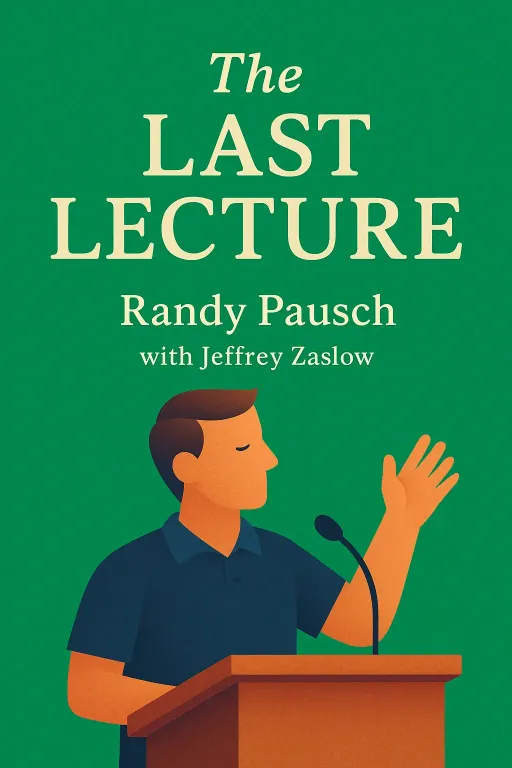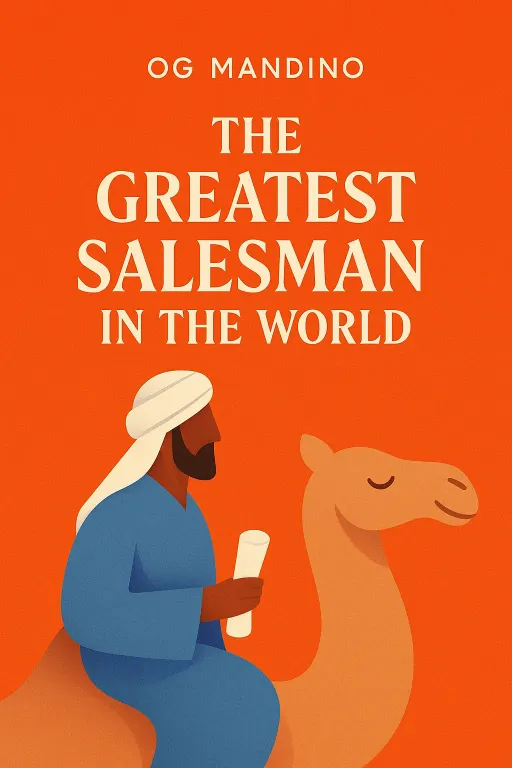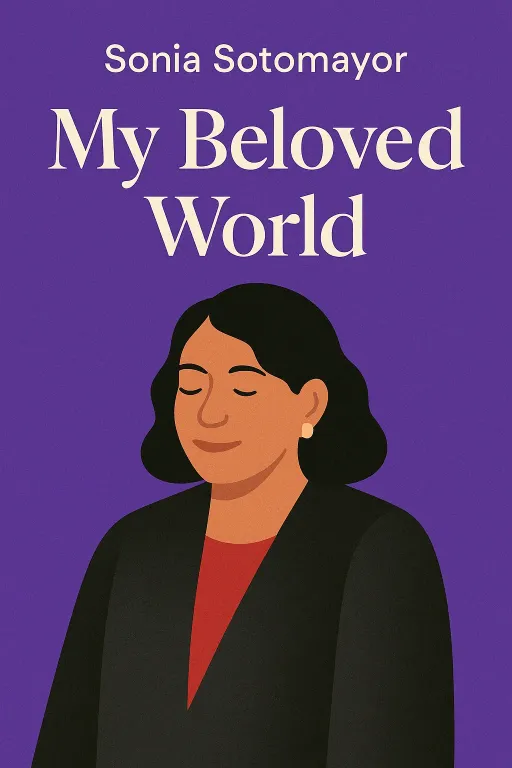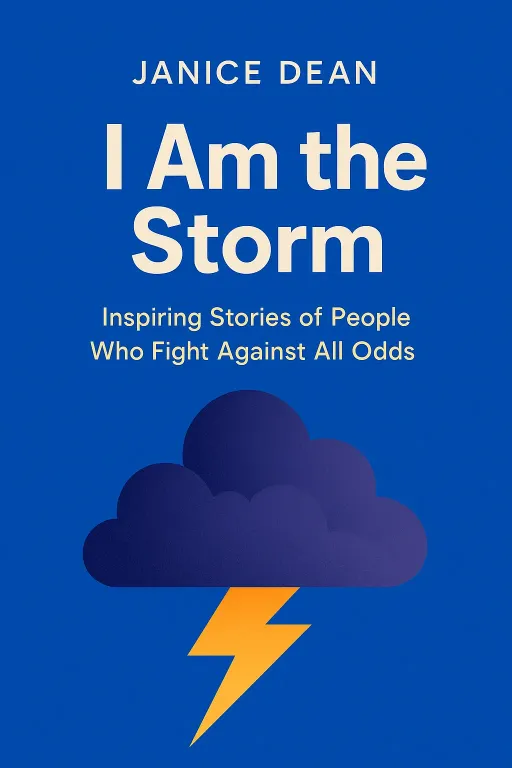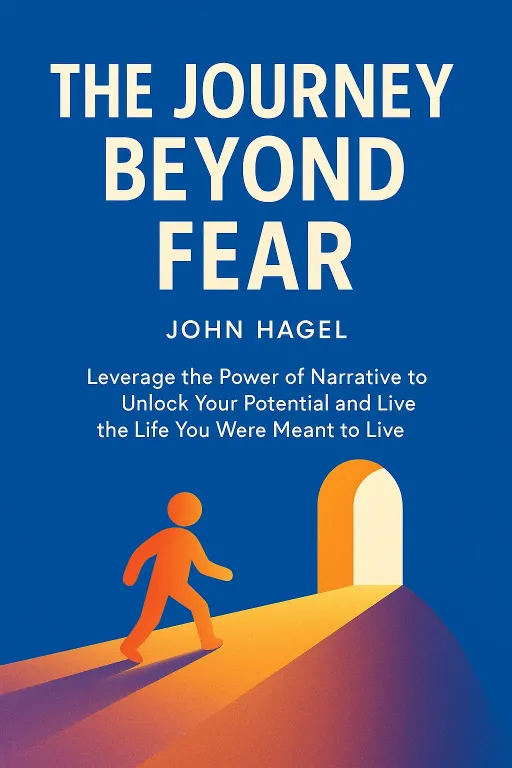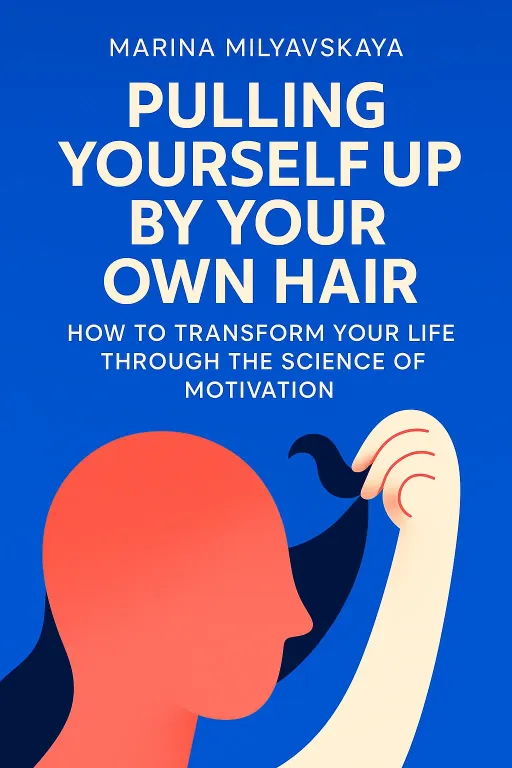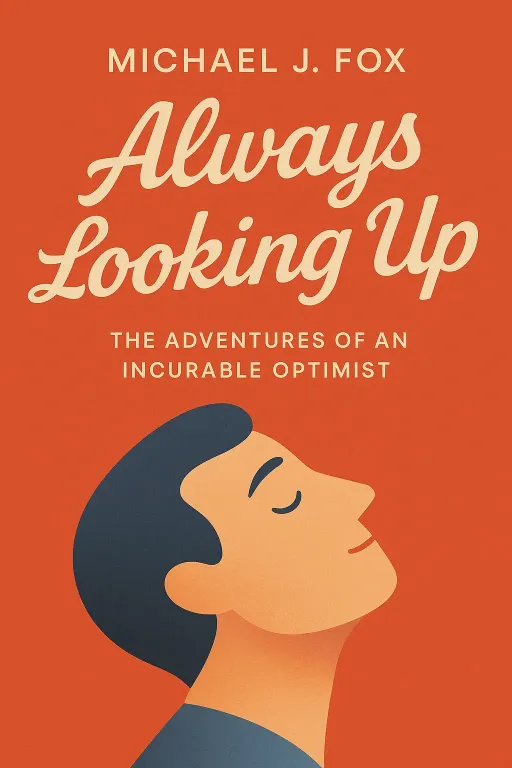
Always Looking Up
9 minThe Adventures of an Incurable Optimist
Introduction
Narrator: He stands before the mirror, a man he barely recognizes. Wet, shaking, rumpled, pinched, and slightly stooped. The tremors of Parkinson's disease are a violent, chaotic dance he can’t control. Yet, as he looks at this reflection, a quiet, defiant thought forms, a promise he makes to himself: "It just gets better from here." This moment of radical optimism in the face of profound physical struggle is the very heart of Michael J. Fox’s memoir, Always Looking Up: The Adventures of an Incurable Optimist. The book is not a story about the tragedy of illness, but a powerful exploration of how to build a new, more meaningful life when the old one is taken away. It reveals how work, politics, faith, and family became the four pillars supporting a life defined not by what was lost, but by what could be built in its place.
Identity Must Be Rebuilt, Not Just Remembered
Key Insight 1
Narrator: For Michael J. Fox, Parkinson's disease wasn't just a diagnosis; it was a thief of identity. The world knew him as "Mike the actor," the quick-witted, physically comedic star of Spin City and Back to the Future. But as the disease progressed, that identity became impossible to maintain. The book opens with a raw depiction of his morning routine, a daily battle against his own body. Simple acts like brushing his teeth or putting on shoes become monumental tasks, complicated by tremors and muscle spasms.
This daily reality forced a painful but necessary evolution. He was no longer just "Mike the actor," but "Mike the actor with PD," and eventually, just "Mike with PD." The breaking point came during a family vacation on New Year's Eve in 1999. While snorkeling, he watched a sea turtle gliding effortlessly through the water and had a moment of profound clarity. He was exhausted, not just from the disease, but from the relentless effort of pretending to be someone he no longer was. He surfaced, turned to his wife, Tracy, and said, "I'm leaving the show." Her simple, immediate response—"Good"—was the validation he needed. Leaving Spin City wasn't an act of surrender; it was an act of self-preservation and the first step toward building a new identity, one grounded in his new reality rather than a past he could no longer inhabit.
Purpose Is Found by Turning Inward Struggle Outward
Key Insight 2
Narrator: After retiring from acting, Fox faced a void. His primary purpose was gone. The answer, he discovered, was not to retreat but to engage. He realized his personal battle was a shared one, representing a vast community of people living with Parkinson's. This shift from private struggle to public advocacy was galvanized by a chance encounter in Paris. While on vacation, he met cyclist Lance Armstrong, who was then celebrated for his own battle against cancer and his work with the Livestrong Foundation.
Fox was deeply inspired by Armstrong's approach: redefining the terms of his disease and using his platform to drive change. Armstrong’s advice was simple but transformative: "It's all about the people you surround yourself with. You can't do it alone." This conversation was a catalyst. Fox returned to New York with a new mission. He didn't just want to be a spokesperson; he wanted to build an engine for a cure. He recruited a team of experts, including former Goldman Sachs executive Debi Brooks, and told them his goal was to put the foundation out of business by finding a cure. The Michael J. Fox Foundation was born, not just as a charity, but as an aggressive, results-driven research organization. By turning his personal fight into a public mission, Fox found a new, more profound sense of purpose than acting had ever provided.
Advocacy Requires Entering the Fray, Not Watching from the Sidelines
Key Insight 3
Narrator: Fox’s work with the foundation inevitably led him into the political arena, specifically the contentious debate over embryonic stem cell research. He understood that scientific progress was being held hostage by political ideology. To change the science, he had to help change the politics. This meant stepping out of his comfortable, universally loved celebrity persona and into the messy, partisan world of campaigning.
The most visceral example of this came during the 2006 midterm elections. Fox filmed a campaign ad for Claire McCaskill, a U.S. Senate candidate in Missouri who supported stem cell research. In the ad, his Parkinson's symptoms—specifically the dyskinesia, or involuntary movements caused by his medication—were clearly visible. The ad was raw, honest, and powerful. It was immediately attacked by conservative commentator Rush Limbaugh, who accused Fox of either acting or intentionally going off his medication to exaggerate his symptoms for political gain. The accusation was a brutal, personal blow. But instead of retreating, Fox and his team stood their ground. The incident backfired on his critics, sparking a national conversation and drawing even more attention to the cause. Fox learned a crucial lesson: effective advocacy isn't about being liked; it's about being heard. It requires a willingness to be vulnerable and to endure personal attacks for the sake of a greater good.
Faith Is an Action, Not a Dogma
Key Insight 4
Narrator: While Fox’s journey involved public battles in science and politics, it also included a deeply personal exploration of faith. Raised with a skeptical view of organized religion, he came to define faith not as a set of beliefs, but as an active component of optimism—a forward-moving force that stands in direct opposition to the paralysis of fear. He argues that to truly understand something, whether it’s a disease or a deity, you must study it and respect it, not simply fear it.
His perspective was profoundly shaped by his encounter with Bishop Carlton D. Pearson, a former evangelical superstar who was declared a heretic for rejecting the concept of hell. Pearson had an epiphany while watching news coverage of the Rwandan genocide, unable to reconcile the idea of a loving God condemning starving, suffering people to eternal damnation. He chose to preach a gospel of universal inclusion, a decision that cost him his megachurch, his reputation, and his fortune. Fox saw in Pearson a man who had chosen truth over comfort, faith over fear. Their connection wasn't based on shared theology, but on a shared understanding that true faith requires the courage to question, to evolve, and to embrace a reality bigger than the one you were taught.
Family Is the Foundation for a Life of Optimism
Key Insight 5
Narrator: Throughout his journey, Fox makes it clear that none of his work—the foundation, the advocacy, the personal growth—would be possible without the unwavering support of his family. They are the "bulwark" against the disease's negative effects. He shares intimate stories that reveal the depth of this support, particularly from his wife, Tracy. In one poignant scene, they attend a high-profile forum at Columbia University. Fox’s medication is wearing off, and he is experiencing severe tremors and rigidity, making it nearly impossible to sit still.
He describes the intense struggle to control his body, feeling the eyes of the audience on him. Tracy, sitting beside him, doesn't make a scene. Instead, she subtly places her hand on his, a small, grounding gesture of support. When they finally leave during a break, the moment is one of quiet, shared understanding. It’s in these unglamorous, difficult moments that the strength of their bond is most evident. His family doesn't just tolerate his condition; they are active participants in his life, providing the love, stability, and acceptance that allow him to continue looking up. This final pillar is the most important, as it’s the one that makes a life of relentless optimism not just possible, but joyful.
Conclusion
Narrator: Ultimately, Always Looking Up delivers a profound message: optimism is not the blind faith that things will be easy, but the active conviction that you can create meaning and purpose no matter the circumstances. Michael J. Fox’s story is a masterclass in adaptation, demonstrating that when one path closes, it’s an opportunity to forge a new one, often leading to a destination more fulfilling than the original.
The book challenges us to ask a difficult question: What do we do when our life plan is irrevocably altered? Do we mourn what’s lost, or do we, like Fox, look in the mirror at our changed reality and find the courage to build something new from the pieces?
